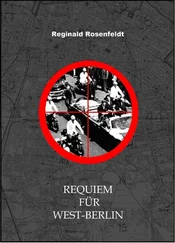Isaiah Berlin - Russian Thinkers
Здесь есть возможность читать онлайн «Isaiah Berlin - Russian Thinkers» весь текст электронной книги совершенно бесплатно (целиком полную версию без сокращений). В некоторых случаях можно слушать аудио, скачать через торрент в формате fb2 и присутствует краткое содержание. Год выпуска: 0101, Жанр: Старинная литература, на русском языке. Описание произведения, (предисловие) а так же отзывы посетителей доступны на портале библиотеки ЛибКат.
- Название:Russian Thinkers
- Автор:
- Жанр:
- Год:0101
- ISBN:нет данных
- Рейтинг книги:3 / 5. Голосов: 1
-
Избранное:Добавить в избранное
- Отзывы:
-
Ваша оценка:
- 60
- 1
- 2
- 3
- 4
- 5
Russian Thinkers: краткое содержание, описание и аннотация
Предлагаем к чтению аннотацию, описание, краткое содержание или предисловие (зависит от того, что написал сам автор книги «Russian Thinkers»). Если вы не нашли необходимую информацию о книге — напишите в комментариях, мы постараемся отыскать её.
Russian Thinkers — читать онлайн бесплатно полную книгу (весь текст) целиком
Ниже представлен текст книги, разбитый по страницам. Система сохранения места последней прочитанной страницы, позволяет с удобством читать онлайн бесплатно книгу «Russian Thinkers», без необходимости каждый раз заново искать на чём Вы остановились. Поставьте закладку, и сможете в любой момент перейти на страницу, на которой закончили чтение.
Интервал:
Закладка:
motives, they played (whether as individuals or as members of a social
class) in promoting or obstructing desirable human ends-scientific
knowledge, or the emancipation of women, or economic progress, or
the revolution.
1 Letter to Herzen, 28 April J 862.
t G. Lopatin, op. cit. (p. 292, note 1 above), p. 1 26.
:l-94

FATHERS AND C H I LDREN
This was the very attitude that Turgenev recoiled from; it was
what he feared in Bazarov and the revolutionaries of Pirgin SDil.
Turgenev, and liberals generally, saw tendencies, political attitudes,
as functions of human beings, not human beings as functions of social
tendencies.1 Acts, ideas, art, literature were expressions of individuals,
not of objective forces of which the actors or thinkers were merely
the embodiments. The reduction of men to the function of being
primarily carriers or agents of impersonal forces was as deeply repellent
to Turgenev as it had been to Henen or, in his later phases, to his
revered friend Belinsky. To be treated with so much sympathy and
understanding, and indeed affection, as human beings and not primarily
as spokesmen for ideologies, was a nre enough experience, a kind of
luxury, for Russian revolutionary exiles abroad. This alone goes some
way to account for the fact that men like Stepnyak, Lopatin, Lavrov
and Kropotkin responded warmly to so understanding, and, moreover,
so delightful and so richly gifted a man as Turgenev. He gave them
secret subsidies but made no intellectual concessions. He believed-this
was his 'old-fashioned' liberalism in the 'English dynastic (he meant
constitutional] sense'1-that only education, only gradual methods,
'industry, patience, self-sacrifice, without glitter, without noise,
homoeopathic injections of science and culture' could improve the
lives of men. He shook and shivered under the ceaseless criticisms to
which he had exposed himself, but, in his own apologetic way, refused
to 'simplify' himself. He went on believing-perhaps this was a relic
of his Hegelian youth- that no issue was dosed for ever, that every
thesis must be weighed against its antithesis, that systems and absolutes
of every kind-social and political no less than religious-were a form
of dangerous idolatry;3 above all, one must never go to war unless
and until all that one believes in is at stake and there is literally no
other way out. Some of the fanatical young men responded with
1 For this excellent formulation of the distinction between liberals and
radicals see Tilt Positiflt Htro i11 Ruui1111 Littrllturt, by R. W. Mathewson
(New York, 1 958).
I Letter to Yt1111ilt. Ef!ropy (see above, p. 29 1, note z). See also the )etten
to Stasyulevich (p. 290, note 1 above), and to Herzen of 2 5 November I 86z,
and F. V olkhovsky's article, 'I van Sergeevich Turgenev', Frtt Russi11, vol.
9 No 4 ( 1 898), pp. z�.
a See the letters to Countess Lambert in 1 864, and to the writer M. A.
Milyutina in 1 875, quoted with much other rdevant material in V. N.
Gorbacheva, Mo/oJyt goJy Turgt11tf!ll (Kazan, 1926).
..
295

R U S S IAN T H I N K E R S
genuine regard and, at 'times, profound admiration. A young radical
wrote in 1 883 'Turgenev is dead. If Shchedrin1 should die too, then
one might as well go down to the grave alive . . . For us these men
replaced parliament, meetings, life, liberty !'1 A hunted member of a
terrorist organisation, in a tribute illegally published on the day of
Turgenev's funeral, wrote 'A gentleman by birth, an aristocrat by upbringing and character, a gradualist by conviction, Turgenev, perhaps without knowing it himself . . • sympathised with, and even served,
the Russian revolution. '3 The special police precautions at Turgenev's
funeral were clearly not wholly superfluous.
I I I
I t is time that Satums ceased dining off their children;
time, too, that children stopped devouring their parents
like the natives of Kamchatka.
Alexander Herzen'
Critical turning-points in history tend to occur, we are told, when a
form of life and its institutions are increasingly felt to cramp and
obstruct the most vigorous productive forces alive in a societyeconomic or social, artistic or intellectual-and it has not enough strength to resist them. Against such a social order, men and groups
of very different tempers and classes and conditions unite. There is an
upheaval-a revolution-which, at times, achieves a limited success. It
reaches a point at which some of the demands or interests of its
original promoters are satisfied to an extent which makes further
fighting on their part unprofitable. They stop, or struggle uncertainly.
The alliance disintegrates. The most passionate and single-minded,
especially among those whose purposes or ideals are furthest from
fulfilment, wish to press on. To stop half-way seems to them a betrayal.
The sated groups, or the less visionary, or those who fear that the old
yoke may be followed by an even more oppressive one, tend to hang
back. They find themselves assailed on two sides. The conservatives
look on them as, at best, knock-kneed supporters, at worst as deserters
1 The satirist Saltykov-Shchedrin;
1 Littrahlmoe 11as/ttislrlo, vol. 76, p. 33 2, and I. 8. TurgtnnJ eo eoospomillatJi·
yalll sourtmtnniloeo, vol. I, Introduction, p. 36.
• The author of the pamphlet was P. F. Yakubovich (quoted in Turgtneeo
eo nmloi hitilt, p. 401).
' 8o6ranit sod1intnii, vol. 10, p. 3 19.
296
FATHERS AND C H I LDREN
and traitors. The radicals look on them as pusillanimous allies, more
often as diversionists and renegades.
Men of this sort need a good deal of courage to resist magnetisation
by either polar force and to urge moderation in a disturbed situation.
Among them are those who see, and cannot help seeing, many sides
of a case, as well as those who perceive that a humane cause promoted
by means that are too ruthless is in danger of turning into its opposite,
liberty into oppression in the name of liberty, equality into a new,
self-perpetuating oligarchy to defend equality, justice into crushing of
all forms of nonconformity, love of men into hatred of those who
oppose brutal methods of achieving it. The middle ground is a
notoriously exposed, dangerous, and ungrateful position. The complex
position of those who, in the thick of the fight, wish to continue to
speak to both sides is often interpreted as softness, trimming, opportunism, cowardice. Yet this description, which may apply to some men, was not true of Erasmus; it was not true of Montaigne; it was
not true of Spinoza, when he agreed to talk to the French invader of
Holland; it was not true of the best representatives of the Gironde,
or of some among the defeated liberals in 1 848, or of stout-hearted
members of the European left who did not side with the Paris Commune in 1 8 7 1 . It was not weakness or cowardice that prevented the Mensheviks from joining Lenin in 1 9 1 7, or the unhappy German
socialists from turning Communist in 1 932.
The ambivalence of such moderates, who are not prepared to break
their principles or betray the cause in which they believe, has become
a common feature of political life after the last war. This stems, in
part, from the historic position of nineteenth-century liberals for whom
Читать дальшеИнтервал:
Закладка:
Похожие книги на «Russian Thinkers»
Представляем Вашему вниманию похожие книги на «Russian Thinkers» списком для выбора. Мы отобрали схожую по названию и смыслу литературу в надежде предоставить читателям больше вариантов отыскать новые, интересные, ещё непрочитанные произведения.
Обсуждение, отзывы о книге «Russian Thinkers» и просто собственные мнения читателей. Оставьте ваши комментарии, напишите, что Вы думаете о произведении, его смысле или главных героях. Укажите что конкретно понравилось, а что нет, и почему Вы так считаете.










